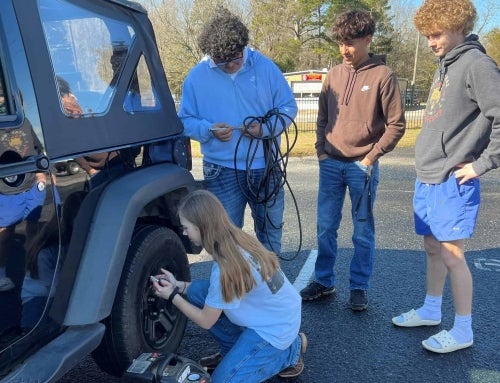A presidential election stirs up extra interest in issues, but no matter the season, it’s always the right time to connect with elected officials to advocate for agriculture and agricultural education.
Celya Glowacki, advocacy and literacy officer for the National FFA Organization, shares five tips to help you support agriculture in your community, state and nation.
1. Pinpoint what you’re most passionate about.
Glowacki recommends focusing your advocacy energy on what’s most important to you, whether that’s bringing awareness to your own supervised agricultural experience (SAE) or the work your FFA chapter is doing in your school or community.
“You’ll be able to speak most clearly and effectively about a topic you feel strongly about, and that’s more likely to resonate with someone,” Glowacki says.
2. Broaden your focus beyond elected officials.
Reaching out to your state representatives or senator is important, but also contact folks closer to home like your school’s principal and your district’s superintendent.
“Sometimes the most powerful advocacy opportunities you have are those in your backyard,” Glowacki says. “For example, your principal may not realize how impactful and important your FFA chapter is; you can be the one to share that message.”
3. Develop an engaging elevator speech.
You probably won’t have much time when you’re speaking, so know what you’re going to say ahead of time – and make it short, sweet and to the point.
“Be prepared to present your story in a way that is both concise and interesting,” Glowacki says. “You want to ensure your audience stays engaged in the conversation.”
4. Position yourself as an expert.
When communicating with elected officials, Glowacki suggests offering yourself as a resource and outlining your expertise in agricultural education – you may know more about the subject matter than they do.
“When it comes to advocating for agricultural education and FFA, there’s no one better to share the message than someone who has lived it and has directly seen the benefits,” Glowacki says.
5. Make a lasting impact through personal connection.
If possible, attend in-person or virtual events where your elected officials will be in attendance and get to know them. You’ll likely impress them with your tenacity and passion, and they might be more apt to listen to your message.
For more information about agricultural advocacy, visit ffa.org/ag-literacy-and-advocacy/.
Friendly reminder: Per the FFA federal charter, “FFA or a director, officer or member acting on behalf of the FFA may not contribute to, support or assist a political party or candidate for elective public office.”












